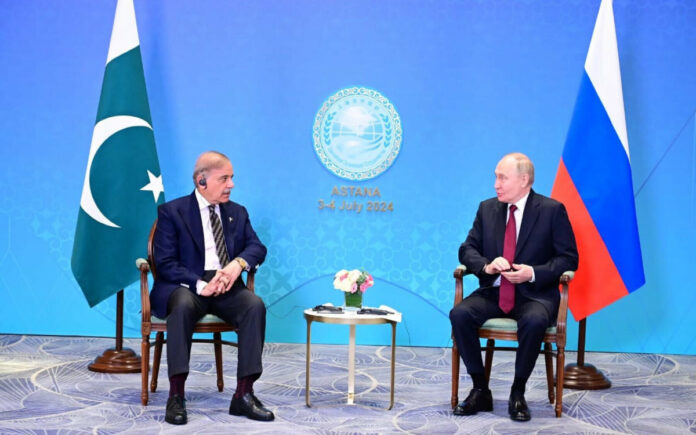Moscow: Under increasing global scrutiny for harboring and sponsoring terrorism, Pakistan is seeking ways to repair its tarnished image and garner international support. In a fresh move, a Pakistani delegation visiting Moscow delivered a personal letter from Prime Minister Shehbaz Sharif to Russian President Vladimir Putin, as reported by PTI.
The letter was handed over during a meeting with Russian Foreign Minister Sergey Lavrov. The delegation was led by Syed Tariq Fatemi, Special Assistant to Prime Minister Sharif, who also briefed Lavrov on recent developments in South Asia.
This diplomatic outreach comes shortly after a multi-party Indian delegation visited Moscow to present India’s position on the Pahalgam terror attack and the ensuing escalations with Pakistan following Operation Sindoor.
Led by DMK MP Kanimozhi Karunanidhi, the Indian delegation highlighted Pakistan’s continued support for cross-border terrorism. They also received a strong endorsement from Moscow for India’s unwavering policy of zero tolerance towards terrorism.
“The special assistant handed over a letter addressed to President Vladimir Putin from Prime Minister Shehbaz Sharif,” the Pakistani Embassy in Moscow was quoted as saying by Russia’s state-run TASS news agency.
The letter reportedly expressed Pakistan’s interest in expanding bilateral cooperation with Russia across sectors such as energy, transportation, trade, and other strategic domains.
According to Russia’s Foreign Ministry, Sergey Lavrov emphasized the importance of direct dialogue between India and Pakistan, stating it was essential for building mutual trust.
Also Read | ICE Takes Mohamed Sabry Soliman’s Family Into Custody After Boulder Attack
Pakistan’s diplomatic efforts in Moscow appear to be a calculated attempt to shift global attention from its role in the April 22 Pahalgam attack, where 26 civilians were killed by Pakistan-based terrorists.
India, in response, launched Operation Sindoor on the night of May 6–7, targeting nine terror camps situated in Pakistan-occupied Jammu and Kashmir (PoJK). The situation quickly escalated as Pakistan retaliated with artillery fire, drone incursions, and targeted attacks on Indian military installations, sparking a fierce three-night-long confrontation.
Also Read | Air Quality Deteriorates in US Midwest as Canadian Wildfire Smoke Spreads
On May 8, 9, and 10, Pakistani forces attempted to strike Indian bases, only to face strong retaliatory responses from the Indian side.
By May 10, amid mounting pressure and continued clashes, Pakistan’s military operations chief initiated direct communication with his Indian counterpart, eventually leading to a ceasefire.



